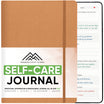Effective time management is often the key to success. With the demands of coursework, exams, and extracurricular activities, students must find ways to balance their commitments and make the most of their study time. One powerful tool for organizing study time and maximizing productivity is a personal planner. In this article, we'll explore how to effectively organize study time in your personal planner and share strategies for academic success.
Importance of Organizing Study Time
Effective time management is crucial for academic success. By organizing study time in advance, students can ensure they allocate sufficient time to each subject or task, reduce procrastination, and maintain a healthy work-life balance. A personal planner provides a structured framework for scheduling study sessions, setting goals, and tracking progress, helping students stay focused and motivated throughout the semester.
Tips for Organizing Study Time in Your Personal Planner
- Set Clear Goals: Begin by setting clear and achievable study goals for each week or month. Break down larger tasks, such as reading assignments or exam preparation, into smaller, manageable steps.
- Allocate Time Blocks: Schedule dedicated study blocks in your personal planner for each subject or task. Be realistic about how much time you'll need for each session and avoid overcommitting yourself.
- Prioritize Tasks: Use your personal planner to prioritize tasks based on urgency and importance. Focus on completing high-priority assignments or studying for exams before tackling less pressing tasks.
- Use a Color-Coding System: Consider using a color-coding system in your personal planner to differentiate between different subjects or types of tasks. This visual organization can help you quickly identify your study priorities at a glance.
- Include Breaks and Rest Periods: Don't forget to schedule regular breaks and rest periods in your study schedule. Taking short breaks between study sessions can help prevent burnout and improve focus and productivity.
- Review and Adjust Regularly: Regularly review your study schedule in your personal planner and make adjustments as needed. Be flexible and willing to adapt your plan based on changes in your workload or unexpected events.
Benefits of Using a Personal Planner for Study Time
- Improved Time Management: A personal planner helps you allocate your study time effectively, ensuring you devote sufficient time to each subject or task.
- Increased Productivity: By having a structured study schedule in place, you can maximize your productivity and make the most of your study sessions.
- Reduced Stress and Anxiety: Organizing study time in advance helps reduce feelings of overwhelm and anxiety, providing a sense of control and confidence in your ability to succeed academically.
- Enhanced Accountability: Writing down your study goals and schedule in your personal planner holds you accountable for following through on your commitments, helping you stay disciplined and focused.
Organizing study time in your personal planner is a powerful strategy for academic success. By setting clear goals, allocating time blocks, prioritizing tasks, and regularly reviewing your schedule, you can maximize your productivity, reduce stress, and achieve your academic goals. Whether you prefer a traditional paper planner or a digital app, the key is to find a system that works for you and stick with it consistently.




















Leave a comment
All comments are moderated before being published.
This site is protected by hCaptcha and the hCaptcha Privacy Policy and Terms of Service apply.